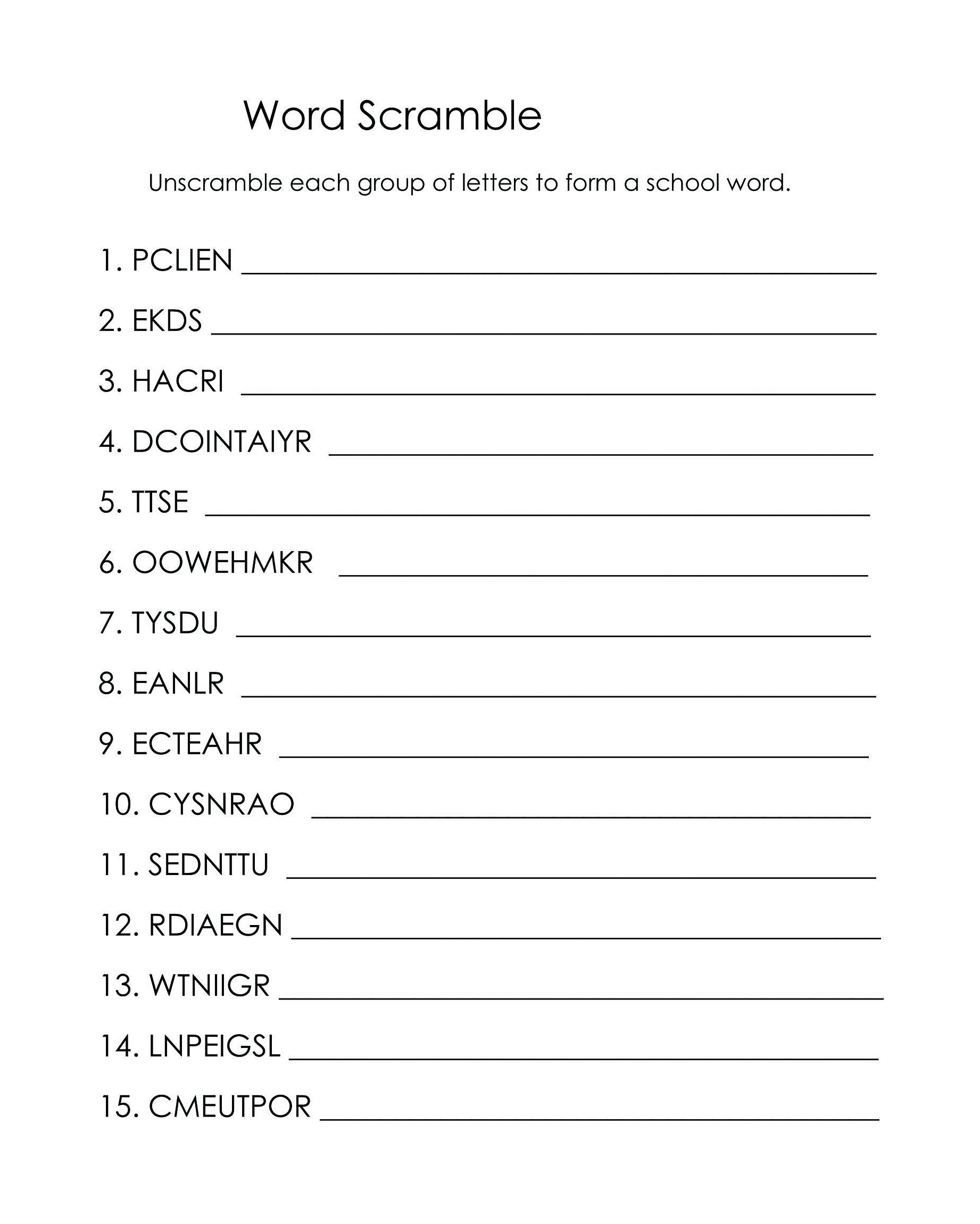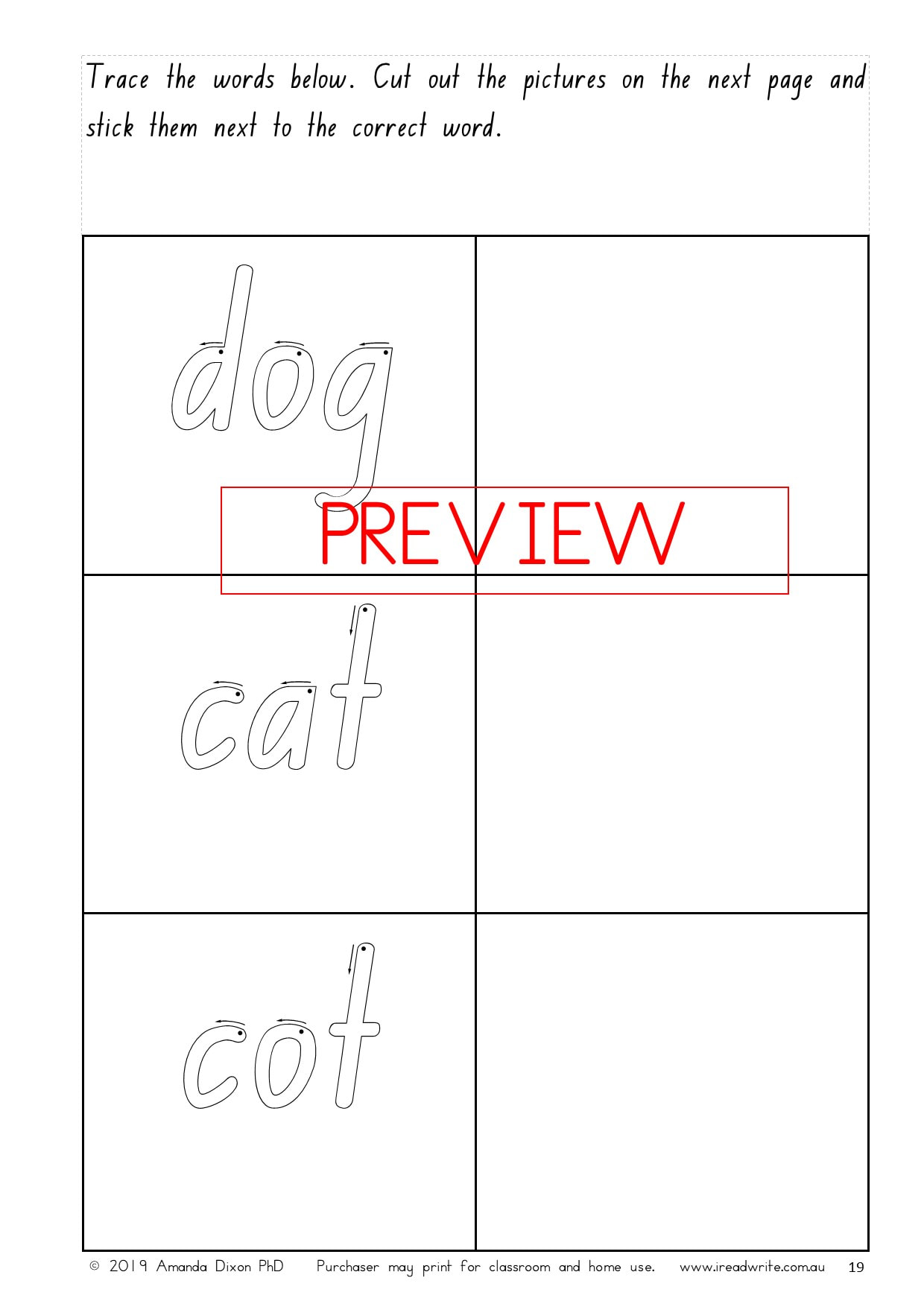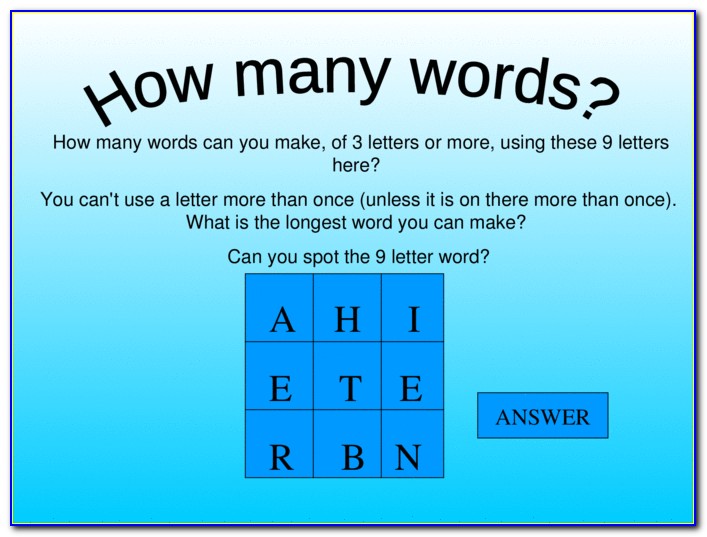Letters To Make Words
Words, the essential building blocks of communication, are brought to life through the magic of letters. From ancient hieroglyphics to the modern alphabet, the power of letters to convey thoughts, ideas, and emotions has shaped human history.
Learning to form words from letters can be a daunting task for both children and adults. The process requires a combination of visual recognition, phonetic awareness, and fine motor skills.
Letters To Make Words is a systematic approach that helps learners develop these essential skills. It starts with the basics of letter recognition and progresses to more advanced concepts such as blending, spelling, and grammar.
The Letters To Make Words method is designed to engage learners of all ages and abilities. It uses a variety of fun and interactive activities to make learning enjoyable and effective.
How Letters To Make Words Helps Learners
Letters To Make Words is a comprehensive program that addresses the fundamental skills necessary for reading and writing success.
The program begins with letter recognition, which is the ability to identify and name the individual letters of the alphabet. Once learners can recognize letters, they can start to blend them together to form words.

Source: www.digitallycredible.com
Blending is a crucial skill for reading fluency. It allows learners to decode unfamiliar words by sounding out the individual letters and then blending them together to form the word.
In addition to letter recognition and blending, Letters To Make Words also teaches learners the basics of spelling and grammar.
Early History and Mythology of Letters To Make Words
The earliest forms of writing, such as hieroglyphics and cuneiform, used symbols to represent words or ideas. These systems were not based on the alphabet, but they did pave the way for the development of alphabetic writing.
The first alphabetic writing systems emerged in the Middle East around 3000 BC. These systems used a limited number of symbols to represent the sounds of language.

Source: www.ireadwrite.com.au
The development of the alphabet was a major breakthrough in human communication. It allowed for the creation of written records that could be easily understood by anyone who knew the alphabet.
The history of the alphabet is full of interesting stories and legends. One of the most famous legends is the story of Cadmus, a Phoenician prince who is said to have introduced the alphabet to Greece.
Unveiling the Secrets of Letters To Make Words
The ability to form words from letters is a complex skill that requires a combination of visual recognition, phonetic awareness, and fine motor skills.
Visual recognition is the ability to identify and name the individual letters of the alphabet. Phonetic awareness is the ability to hear and manipulate the sounds of language.

Source: www.ireadwrite.com.au
Fine motor skills are the ability to control the small muscles of the hand and fingers. These skills are necessary for writing and typing.
The development of these skills is essential for reading and writing success.
Recommendations for Learning Letters To Make Words
There are many different ways to learn how to form words from letters. Some of the most effective methods include:
- Phonics instruction: Phonics instruction teaches learners the relationship between letters and sounds.
- Sight word instruction: Sight word instruction teaches learners to recognize and read common words.

Source: queenexpublishers.co.ke
- Writing practice: Writing practice helps learners develop the fine motor skills needed for writing.
- Reading aloud: Reading aloud helps learners develop fluency and comprehension.
These are just a few of the many different ways to learn how to form words from letters.
Tips for Developing Letters To Make Words Skills
Here are a few tips for developing letters to make words skills:
- Start with letter recognition.
- Practice blending sounds.
- Write words frequently.
- Read aloud to children.
- Play word games.
- Encourage creativity.

Source: www.fabtemplatez.com
With practice, anyone can learn how to form words from letters.
Fun Facts about Letters To Make Words
Here are a few fun facts about letters to make words:
- The word “alphabet” comes from the first two letters of the Greek alphabet, alpha and beta.
- There are 26 letters in the English alphabet.
- The most commonly used letter in the English language is the letter “e”.
- The longest word in the English language is “pneumonoultramicroscopicsilicovolcanoconiosis”.
- The shortest word in the English language is “a”.
How To: Letters To Make Words
Here are the steps on how to form words from letters:
- Start by identifying the letters in the word.
- Sound out each letter.
- Blend the sounds together to form the word.
- Write the word down.

Source: www.supercoloring.com
With practice, you will be able to form words from letters quickly and easily.
What Ifs: Letters To Make Words
What if you could not form words from letters? What would happen if you could not read or write?
The ability to form words from letters is a fundamental skill that is essential for communication and learning.
Listicle of Letters To Make Words
Here is a listicle of tips for forming words from letters:
- Start with letter recognition.
- Practice blending sounds.
- Write words frequently.
- Read aloud to children.
- Play word games.
- Encourage creativity.
- Be patient and practice regularly.

Source: soulcompas.com
With practice, anyone can learn how to form words from letters.
Questions and Answers about Letters To Make Words
- The best way to learn how to form words from letters is to start with letter recognition and then practice blending sounds. You can also write words frequently and read aloud to children.
Some tips for forming words from letters include starting with letter recognition, practicing blending sounds, writing words frequently, reading aloud to children, playing word games, and encouraging creativity.
The benefits of learning how to form words from letters include improved reading and writing skills, better communication skills, and increased confidence.
Some of the challenges of learning how to form words from letters include letter recognition difficulties, blending difficulties, and fine motor skill difficulties.
Conclusion of Letters To Make Words
The ability to form words from letters is a fundamental skill that is essential for communication and learning.
Letters To Make Words is a systematic approach that helps learners develop the skills necessary to form words from letters.
With practice, anyone can learn how to form words from letters. This skill will open up a world of possibilities for learning and communication.